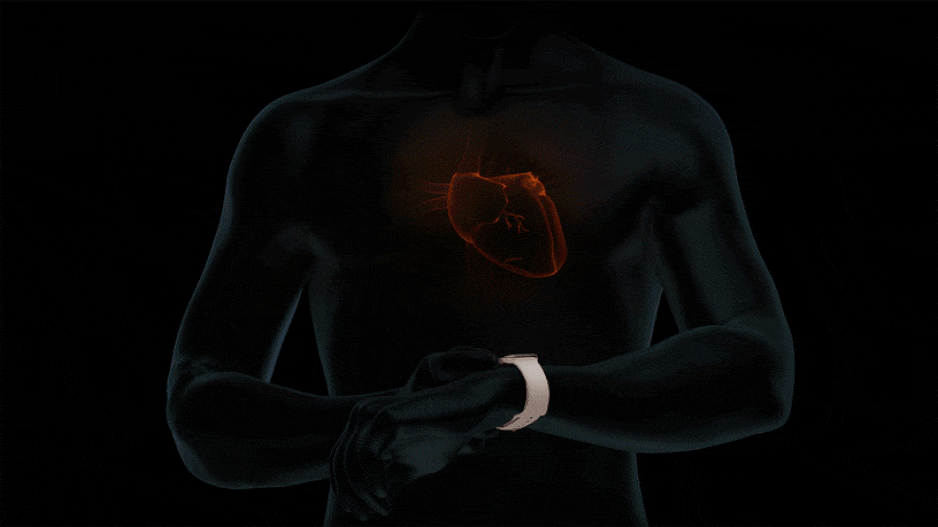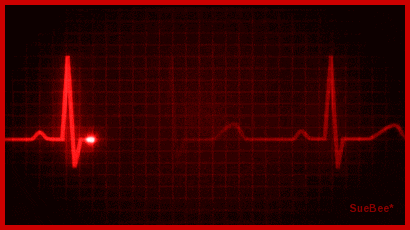Do you want to test your knowledge of cardiovascular conditions prior to reading this blog?
Play the following simulation.
All of the important organ systems in your body are linked together much like a train-line. If the train breaks down in the middle of its route, no other trains on the same line can get past and the passengers can’t reach their destination. This happens in your body too – when considering the trains and passengers as blood, and this is how heart disease can cause abnormalities in other systems in the body. By maintaining adequate heart functionality, exercise serves to prolong your life and keeps you healthy.
How is your lifestyle killing you?
A cardiovascular neuroscientist, Dr Marina-Gonzalez, discusses the mechanisms underlying the development of hypertension and emphasizes on the fact that obesity is highly linked with high blood pressure. High blood pressure contributes to the development of cardiovascular disease. When the blood pressure is high, the blood pumps more blood volume per beat. The oxygenated blood that exits the left ventricle is pumped at high pressure and continues to flow through the aorta which branches into arteries. The high blood pressure can damage the endothelial lining of the arteries and result in a stroke or heart attack. The following image shows the correlation between blood pressure and blood volume, measured in the left ventricle.
To fully understand the structure of the heart, play the following interactive simulation.
You should also have a look at the following educational content material.
Stress, smoking, alcohol, physical inactivity, and high-fat diet cause atherosclerosis, the plaque build-up within the arteries. Dr Marina-Gonzalez in collaboration with Dr Noora Al-Rasheid and other researchers provided the newest study which shows possible inhibition methods of leptin secretion from subcutaneous adipose tissue. The plaque, primarily containing cholesterol, narrows the arteries’ diameter. If coronary artery narrows, the nutrients, and oxygen supply to the heart are limited. Consequently, blood clots form and block the coronary artery. The complete blockage results in a heart attack, which either has a lethal outcome or decreases your life expectancy. Heart attack belongs to the cardiovascular class of diseases whose presence has drastically increased.
Watch my video!
What makes cardiovascular disease (CVD) the primary cause of death?
CVD causes more than 3.9 million deaths each year across Europe. The heart is a cardiac muscle, it ages and its function decreases over the years. Since the CVD is more present in adults and the elderly, an increase in life expectancy results in an increased number of people that died from CVD. Fast paced life and modern technologies make people more stressed, less active and encourage poor eating and living habits.
Increased physical activity can save you from cardiovascular disease!
For that reason, take action today!
Complete my survey to check if you are at risk of developing CVD.
How can exercise prevent coronary artery blockage?
The National Health Service recommends 150 minutes of moderate aerobic activity per week. Exercise can prevent cardiovascular disease in two ways:
Firstly, it can reduce the risk of coronary artery blockage by decreasing the fat content of blood. Since muscles need the energy to contract during exercise, your body will use the energy stored as fats in your body during exercise, causing the fat content in your body and blood to drop. As there are fewer fats in the blood, it will be harder for plaque to form in the coronary artery, helping to prevent blockage.
Exercise can also reduce blood pressure. The heart needs to pump blood to muscles to supply them with oxygen and nutrients so that they can generate energy during exercise. You should start a regular exercise and lose weight. changed your behavior Regular physical activity strengthens your heart muscles, allowing it to pump more blood with less effort and decrease the force applied to your arteries.
For a greater understanding of the way, the heart works click on the following link.
Listen to the talk by Professor Bryan Williams if you are experiencing high blood pressure.
How does the brain cause high blood pressure?
The nervous system can also cause high blood pressure (hypertension). Research conducted by Dr Marina-Gonzalez et al. suggests that hypertension might be a compensatory condition of brain hypoxia (brain depletion for oxygen). Part of your brain called medulla oblongata is very sensitive to oxygen depletion. When medulla oblongata is activated it increases the blood pressure within your arteries. Brain hypoxia often occurs as a result of weight lifting (endurance exercise). Because when you stand up suddenly most of the blood goes to the limbs and your brain is not perfused with oxygen and nutrients.
Furthermore, a review article by Dr Marina-Gonzalez suggests that the cells that nourish the neurons known as glial cells might be correlated with the development and progression of cardiovascular disease. Scientists found that glial cells increase the sympathetic activity of your brain. The sympathetic system is part of your nervous system and it increases the heart rate, influencing the development and progression of cardiovascular disease.
The brain can also impair exercise capacity. Dr Marina-Gonzalez also provided findings which show that brainstem vagal activity is associated with exercise capacity.
Vice versa, high blood pressure can cause a brain hemorrhage, a type of stroke when an artery bursts in the brain and results in bleeding.
Inform yourself further and listen to the talk given by Professor David Werring:
Furthermore, the astroglial cells (star-like shaped brain cells that nourish the neurons) activity is found to increase the sympathetic activity at renal-level and an increase in arterial blood pressure.
How are heart disease and kidney disease related?
The kidneys are made up of filtering units called nephrons. They have the role of filtering your blood to remove all its waste in your urine. Kidneys also regulate blood pressure via a complex hormonal system.
If your kidneys are damaged, they require more blood from the heart in order to maintain normal function. This puts extra strain on your heart to pump more blood which has the potential to be very damaging. Also, toxins remain in the blood if filtration does not occur effectively which can likely cause injury to the heart and other organs. Research conducted by UCL researchers shows that the majority of patients with chronic kidney disease die of cardiovascular disease (CVD) before progressing to end-stage renal disease.
An impaired heart cannot pump enough blood to all the organs. Without enough blood, your kidneys start failing due to the lack of oxygen. Blockages in the vessels that transport blood around your body also causes an increase in blood pressure which results in useful molecules, e.g. proteins, being lost as waste in your urine.
How does exercise help reduce the risk of CVD?
Exercise ensures that the kidneys receive a sufficient amount of blood to perform an adequate function as well as causing less stress on your heart. During exercise, your heart rate increases and as you can see from the image below the stroke volume (blood volume pumped from the ventricles in one beat) increases as well, causing an overall increase in cardiac output (blood volume pumped from the heart in 1 minute). During exercise, the heart adapts by increasing the cardiac because the cells need to be supplied by the heart with more oxygen. Exercise helps you prevent yourself from hypertension which is often correlated to the progression of other cardiovascular complications such as aortic stenosis, the narrowing of aortic valve opening.
Watch the following video to see a simulation showing the cardiovascular effects of exercise training created using Circadapt.
Conclusion
To conclude, exercise is vital to keep your body healthy and your heart strong. This is crucial given the fact that the cardiovascular system is responsible for delivering nutrients and oxygen to the body and organs. For this reason, if the heart fails, other organs will fail too. Exercise can help to prevent us from suffering from cardiovascular disease, which would affect the rest of our organs.
Strengthen to prevent.


